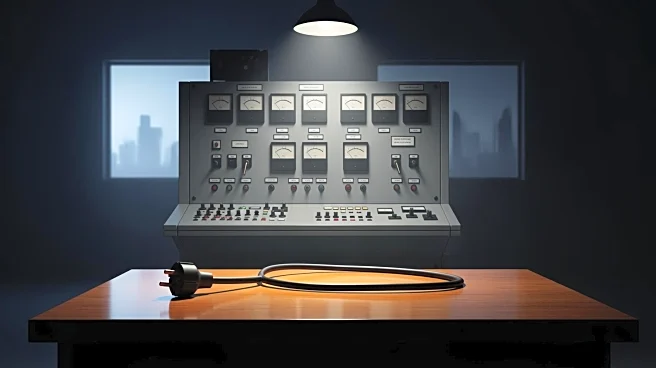What's Happening?
Justice Amy Coney Barrett and other Supreme Court justices have expressed skepticism about the Trump administration's use of the International Emergency Economic Powers Act (IEEPA) to impose tariffs. During
oral arguments, the justices questioned whether IEEPA, a law designed to address national emergencies, grants the president the authority to levy tariffs. The administration argues that the law's language allows for broad regulatory powers, including tariffs, but justices pointed out that the statute does not explicitly mention tariffs. The case challenges the president's ability to use IEEPA for economic measures, a key component of President Trump's trade policy.
Why It's Important?
The case could redefine the limits of presidential power in trade matters, affecting how future administrations use emergency powers. A ruling against the administration may restrict the president's ability to impose tariffs without congressional approval, potentially altering U.S. trade policy. This decision could also influence the balance of power between the executive and legislative branches, as Congress traditionally holds the authority to regulate trade. The outcome may impact businesses and consumers by affecting tariff rates and international trade relations.
What's Next?
The Supreme Court has not yet issued a ruling, but the decision will have significant implications for U.S. trade policy and executive authority. If the court rules against the administration, it may prompt a reevaluation of IEEPA and other related statutes. The decision could also lead to legislative action to clarify the scope of emergency powers in economic contexts. Stakeholders, including businesses and trade partners, are closely watching the case, as it could affect international trade dynamics and economic strategies.








